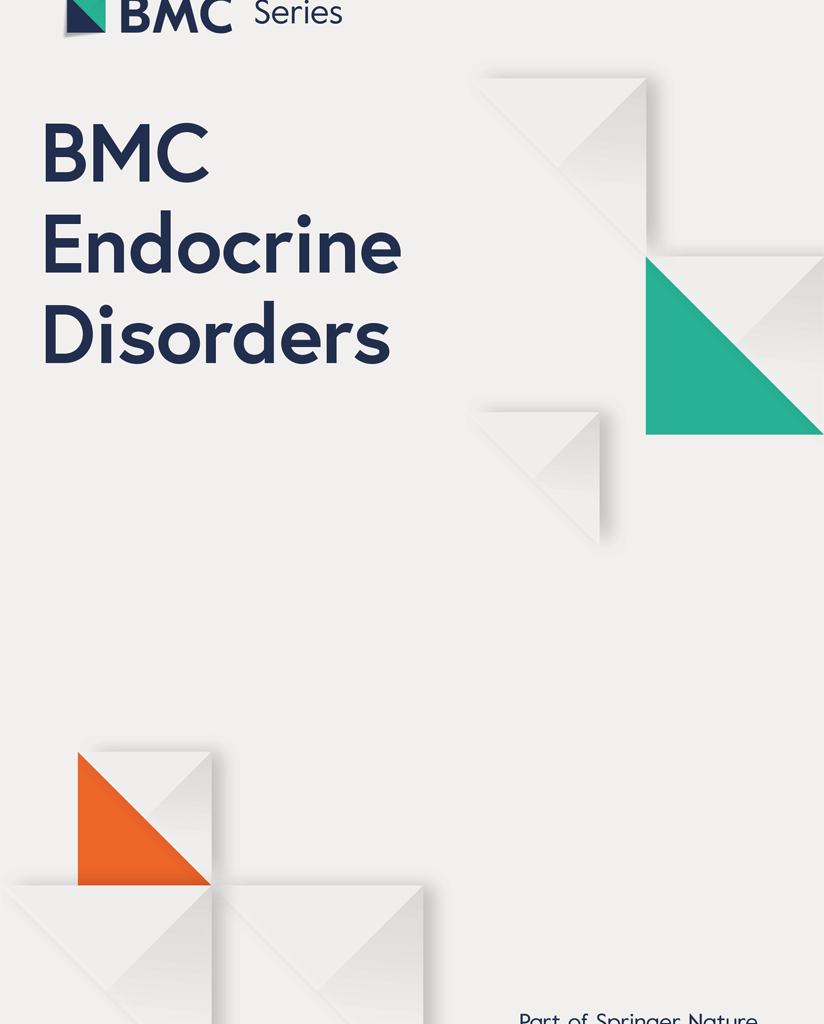Collaboration NCDRF. Worldwide trends in diabetes prevalence and treatment from 1990 to 2022: a pooled analysis of 1108 population-representative studies with 141 million participants. Lancet. 2024;404(10467):2077–93.
Johansen KL, Chertow GM, Foley RN, Gilbertson DT, Herzog CA, Ishani A, et al. Epidemiology of Kidney Disease in the United States. Am J Kidney Dis. 2021;77(4 Suppl 1):A7–8. US Renal Data System 2020 Annual Data Report:.
American Diabetes Association Professional Practice C. 11. Chronic kidney disease and risk management: standards of care in Diabetes-2024. Diabetes Care. 2024;47(Suppl 1):S219–30.
Bomholt T, Adrian T, Norgaard K, Ranjan AG, Almdal T, Larsson A, et al. The use of HbA1c, glycated albumin and continuous glucose monitoring to assess glucose control in the chronic kidney disease population including Dialysis. Nephron. 2021;145(1):14–9.
Kidney Disease: Improving Global Outcomes Diabetes Work G. KDIGO 2020 clinical practice guideline for diabetes management in chronic kidney disease. Kidney Int. 2020;98(4S):S1–115.
Rahhal MN, Gharaibeh NE, Rahimi L, Ismail-Beigi F. Disturbances in Insulin-Glucose metabolism in patients with advanced renal disease with and without diabetes. J Clin Endocrinol Metab. 2019;104(11):4949–66.
Ling J, Ng JKC, Chan JCN, Chow E. Use of continuous glucose monitoring in the assessment and management of patients with diabetes and chronic kidney disease. Front Endocrinol (Lausanne). 2022;13:869899.
UK Prospective Diabetes Study (UKPDS) Group. Intensive blood-glucose control with sulphonylureas or insulin compared with conventional treatment and risk of complications in patients with type 2 diabetes (UKPDS 33). Lancet. 1998;352(9131):837–53.
Nathan DMGS, Lachin J, et al. The effect of intensive treatment of diabetes on the development and progression of long-term complications in insulin-dependent diabetes mellitus. NEJM. 1993;329:977–86.
Hirakawa Y, Arima H, Zoungas S, Ninomiya T, Cooper M, Hamet P, et al. Impact of visit-to-visit glycemic variability on the risks of macrovascular and microvascular events and all-cause mortality in type 2 diabetes: the ADVANCE trial. Diabetes Care. 2014;37(8):2359–65.
Zhou JJ, Schwenke DC, Bahn G, Reaven P, Investigators V. Glycemic variation and cardiovascular risk in the veterans affairs diabetes trial. Diabetes Care. 2018;41(10):2187–94.
Segar MW, Patel KV, Vaduganathan M, Caughey MC, Butler J, Fonarow GC, et al. Association of Long-term change and variability in glycemia with risk of incident heart failure among patients with type 2 diabetes: A secondary analysis of the ACCORD trial. Diabetes Care. 2020;43(8):1920–8.
Martens T, Beck RW, Bailey R, Ruedy KJ, Calhoun P, Peters AL, et al. Effect of continuous glucose monitoring on glycemic control in patients with type 2 diabetes treated with basal insulin: A randomized clinical trial. JAMA. 2021;325(22):2262–72.
Lind N, Christensen MB, Hansen DL, Norgaard K. Comparing continuous glucose monitoring and blood glucose monitoring in adults with inadequately controlled, Insulin-Treated type 2 diabetes (Steno2tech Study): A 12-Month, Single-Center, randomized controlled trial. Diabetes Care. 2024;47(5):881–9.
Seidu S, Kunutsor SK, Ajjan RA, Choudhary P. Efficacy and safety of continuous glucose monitoring and intermittently scanned continuous glucose monitoring in patients with type 2 diabetes: A systematic review and Meta-analysis of interventional evidence. Diabetes Care. 2024;47(1):169–79.
Rotondi MA, Wong O, Riddell M, Perkins B. Population-Level impact and Cost-effectiveness of continuous glucose monitoring and intermittently scanned continuous glucose monitoring technologies for adults with type 1 diabetes in canada: A modeling study. Diabetes Care. 2022;45(9):2012–9.
Wan W, Skandari MR, Minc A, Nathan AG, Winn A, Zarei P, et al. Cost-effectiveness of continuous glucose monitoring for adults with type 1 diabetes compared with Self-Monitoring of blood glucose: the DIAMOND randomized trial. Diabetes Care. 2018;41(6):1227–34.
Lin R, Brown F, James S, Jones J, Ekinci E. Continuous glucose monitoring: A review of the evidence in type 1 and 2 diabetes mellitus. Diabet Med. 2021;38(5):e14528.
Williams J, Gilchrist M, Strain WD, Fraser D, Shore A. 24-h glycaemic profiles in peritoneal Dialysis patients and non-dialysis controls with advanced kidney disease. Perit Dial Int. 2022;42(5):497–504.
Horne C, Cranston I, Amos M, Flowers K. Accuracy of continuous glucose monitoring in an Insulin-Treated population requiring haemodialysis. J Diabetes Sci Technol. 2023;17(4):971–5.
Kovatchev BPCD, Kumar A, Gonder-Frederick L, Clarke WL. Algorithmic evaluation of metabolic control and risk of severe hypoglycemia in type 1 and type 2 diabetes using Self-Monitoring blood glucose data. Diabetes Technol Ther. 2003;5(5):817–28.
J Schlichtkrull Om Mjersild. The M-Value, an index of Blood-sugar control in diabetics. Acta Med Scand. 1965;177.
Service FJMG, Rosevear JW, Ackerman E, Gatewood LC, Taylor WF. Mean amplitude of glycemic Excursions, a measure of diabetic instability. Diabetes. 1970;19(9):644–55.
Kovatchev BP, Otto E, Cox D, Gonder-Frederick L, Clarke W. Evaluation of a new measure of blood glucose variability in diabetes. Diabetes Care. 2006;29(11):2433–8.
Vantyghem EARTSKGBWPPASDBAMJSM-C. Assessment of the severity of hypoglycemia and glycemic lability in type 1 diabetic subjects undergoing islet transplantation. Diabetes. 2004;53(4):955–62.
JM W. J-index. A new proposition of the assessment of current glucose control in diabetic patients. Horm Metab Res. 1995;27(1):41–2.
McDonnell CMDS, Vidmar SI, Werther GA, Cameron FJ. A novel approach to continuous glucose analysis utilizing glycemic variation. Diabetes Technol Ther. 2005;7(2):253–63.
Hill NR, Hindmarsh PC, Stevens RJ, Stratton IM, Levy JC, Matthews DR. A method for assessing quality of control from glucose profiles. Diabet Med. 2007;24(7):753–8.
Hermanides J, Vriesendorp TM, Bosman RJ, Zandstra DF, Hoekstra JB, Devries JH. Glucose variability is associated with intensive care unit mortality. Crit Care Med. 2010;38(3):838–42.
Kidney Disease: Improving Global Outcomes Diabetes Work G. KDIGO 2022 clinical practice guideline for diabetes management in chronic kidney disease. Kidney Int. 2022;102(5S):S1–127.
Zhang XM, Shen QQ. Application and management of continuous glucose monitoring in diabetic kidney disease. World J Diabetes. 2024;15(4):591–7.
Abe M, Kalantar-Zadeh K. Haemodialysis-induced hypoglycaemia and glycaemic disarrays. Nat Rev Nephrol. 2015;11(5):302–13.
Belli M, Bellia A, Sergi D, Barone L, Lauro D, Barilla F. Glucose variability: a new risk factor for cardiovascular disease. Acta Diabetol. 2023;60(10):1291–9.

